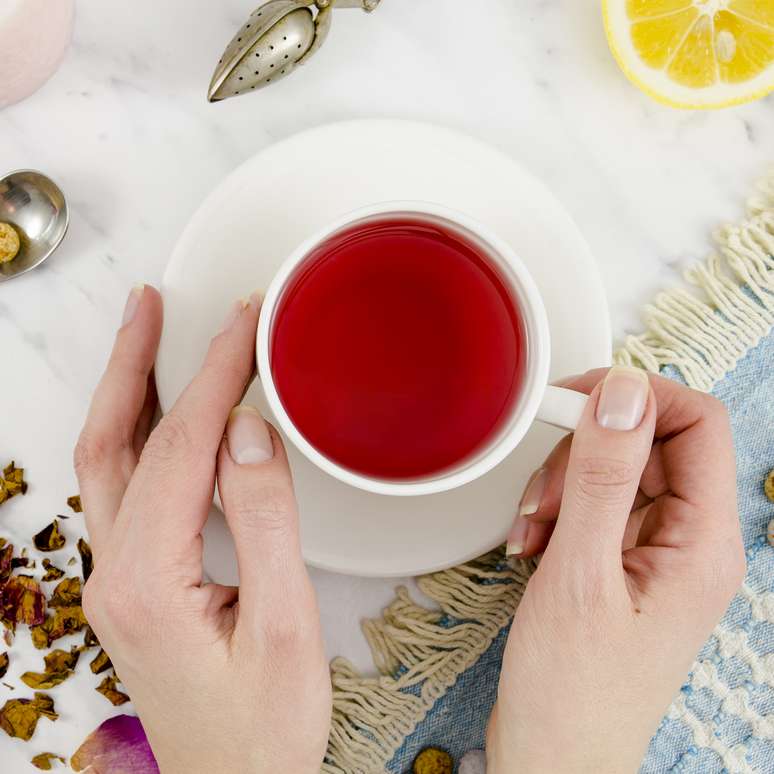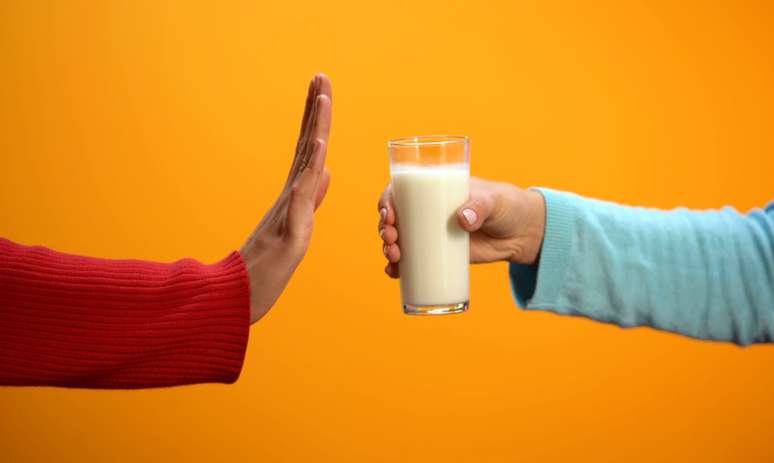Some drinks can relieve the typical discomfort of the menstrual period, such as pain, nausea and others. Find out what they are!
That’s not today you They are used to help improve a number of health conditions. Proof of their effectiveness is that, since 1979, the World Health Organization (WHO) has recommended their use as a complementary practice of integration in the public health system.
In relation to female health, recent studies and research have already evaluated the impacts of the use of natural herbal teas on the typical symptoms of the menstrual period, such as irregular cycles, constipation, inflammation, cramps or nausea, for example.
A study carried out by researchers at the Instituto Tecnológico de Monterrey, Mexico, in collaboration with the WHO, highlights that teas are effective and low-cost options for women suffering from reproductive system disorders.
More than 180 species of herbs were evaluated in the research, of which three are the most used to relieve the symptoms of the menstrual cycle: chamomile, cinnamon and ginger. Natural options have been used for menstrual cramps, heavy bleeding during menstruation, nausea, and other symptoms.
Teas are alternatives to medications
Belonging to natural medicine, teas have become the choice of many people who prefer to avoid chemical drugs and long-term side effects. Additionally, herbs tend to be cheaper and do not require a prescription, as explained Paolo Molari AbdoUSP pharmacist and technical director of Formularium.
According to the professional, who is also a member of the SBRAFH (Brazilian Society of Hospital Pharmacy), the ANFARMAG (National Association of Master Pharmacists) and a specialist in pharmaceutical care of the USP, there is a wide variety of herbs and teas traditionally used for menstrual cycle problems.
“In addition to helping regulate the menstrual cycle, some teas can also relieve associated symptoms, such as cramps and bloating. Additionally, many offer other health benefits, such as antioxidant and anti-inflammatory properties,” the pharmacist points out.
Herbal teas for the menstrual period
Herbal teas can regulate hormone levels and reduce inflammation while providing essential vitamins and minerals for women’s health. Below, Paula outlines the five best options for your period:
Chamomile tea
Chamomile is one of the most used medicinal plants in the world and is listed in the pharmacopoeias of at least 26 countries. It is traditionally used to reduce anxiety (common in PMS) and also to treat chronic cramps and excessive menstrual bleeding, as shown in a 2023 study.
“Chamomile has chamazulene, apigenin and flavonoids, properties with anti-inflammatory, analgesic and antioxidant action, which help relieve symptoms such as cramps, anxiety and irritability, as well as containing heavy menstrual flow”, explains Paula.
Ginger tea
According to the pharmacist, ginger root contains compounds such as gingerol and ginger dione, which have anti-inflammatory and antispasmodic properties. Historically, ginger has been used to treat pain and inflammation, and these properties may explain its effectiveness in relieving menstrual pain.
According to a review of studies, there are more than 60 active antioxidants in ginger, such as gingerols and zingerone, with important properties that reduce inflammation, particularly in the treatment of primary dysmenorrhea.
Cinnamon tea
The results of numerous studies demonstrate that consumption of natural cinnamon tea reduces pain associated with menstruation and controls heavy menstrual flow. “Cinnamon has antioxidant, anti-inflammatory, antidiabetic, antifungal and antibacterial properties, as well as improving nausea and diarrhea,” adds the professional.
Also according to research, cinnamon has been used in the treatment of polycystic ovary syndrome, which features symptoms of cramps, absence of menstruation or amenorrhea, and abnormal menstruation or oligomenorrhea.
vitex tea
According to the pharmaceutical company, the extract of Vitex agnus-castus, or “Tree of Chastity”, contains iridoids and flavonoids, which can help in hormonal modulation, especially in regulating the secretion of prolactin, a hormone capable of balancing the menstrual cycle .
A series of studies published in Thieme have shown that Vitex agnus-castus can reduce the symptoms of menopause and, above all, premenstrual syndrome, being one of the active ingredients most appreciated by those suffering from premenstrual syndrome. Other effects include: decreased irritability, constipation, anxiety, migraines, cramps and breast tenderness.
Dong Quai tea
Traditional in Chinese medicine, but popular around the world, dong quai tea promises to facilitate blood circulation. Women postpartum (with medical advice), during menstruation, menopause, and those with disabling cramps benefit from dong quai tea, also known as “female ginseng.”
“Radix Angelica Sinensis, commonly known as Angelica sinensis or Dong Quai, contains a variety of compounds, including organic acids, polysaccharides and flavones, known for their beneficial properties such as facilitating blood circulation, relieving pain and treating menstrual disorders. ” concludes Paula Molari Abdo.
Source: Terra
Ben Stock is a lifestyle journalist and author at Gossipify. He writes about topics such as health, wellness, travel, food and home decor. He provides practical advice and inspiration to improve well-being, keeps readers up to date with latest lifestyle news and trends, known for his engaging writing style, in-depth analysis and unique perspectives.






![It All Begins Here: What’s in store for Thursday 16 October 2025 Episode 1286 [SPOILERS] It All Begins Here: What’s in store for Thursday 16 October 2025 Episode 1286 [SPOILERS]](https://fr.web.img3.acsta.net/img/7d/99/7d99acbb3327f48a72b40f684092775e.jpg)

